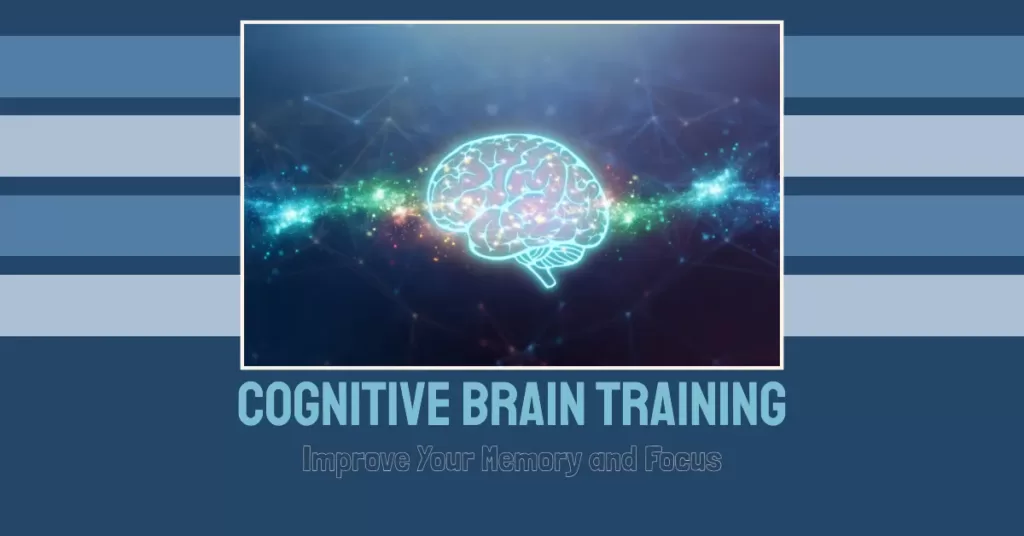Cognitive brain training refers to a series of exercises and activities designed to improve cognitive abilities such as memory, attention, problem-solving, and language skills. These exercises are based on the principle of neuroplasticity, which suggests that the brain has the ability to change and adapt throughout life.
Table of Contents
- 1 Types of Cognitive Brain Training Exercises
- 2 Brain Training Exercises for Improved Memory
- 3 Brain Training Exercises for Increased Focus and Cognitive Function
- 4 Language and Communication Exercises: Enhancing Your Verbal Proficiency
- 5 Incorporating Cognitive Brain Training into Your Daily Routine
- 6 The Future of Cognitive Brain Training
- 7 Conclusion
Benefits of Cognitive Brain Training
Cognitive brain training has been shown to have a range of benefits, including:
- Improved memory and recall;
- Increased attention and focus;
- Enhanced problem-solving skills;
- Better language and communication abilities;
- Reduced risk of cognitive decline in older adults.
How Cognitive Brain Training Works
Cognitive brain training works by stimulating neural pathways in the brain through targeted exercises and activities. These exercises can help to strengthen existing neural connections and create new ones, leading to improved cognitive function over time.
Types of Cognitive Brain Training Exercises
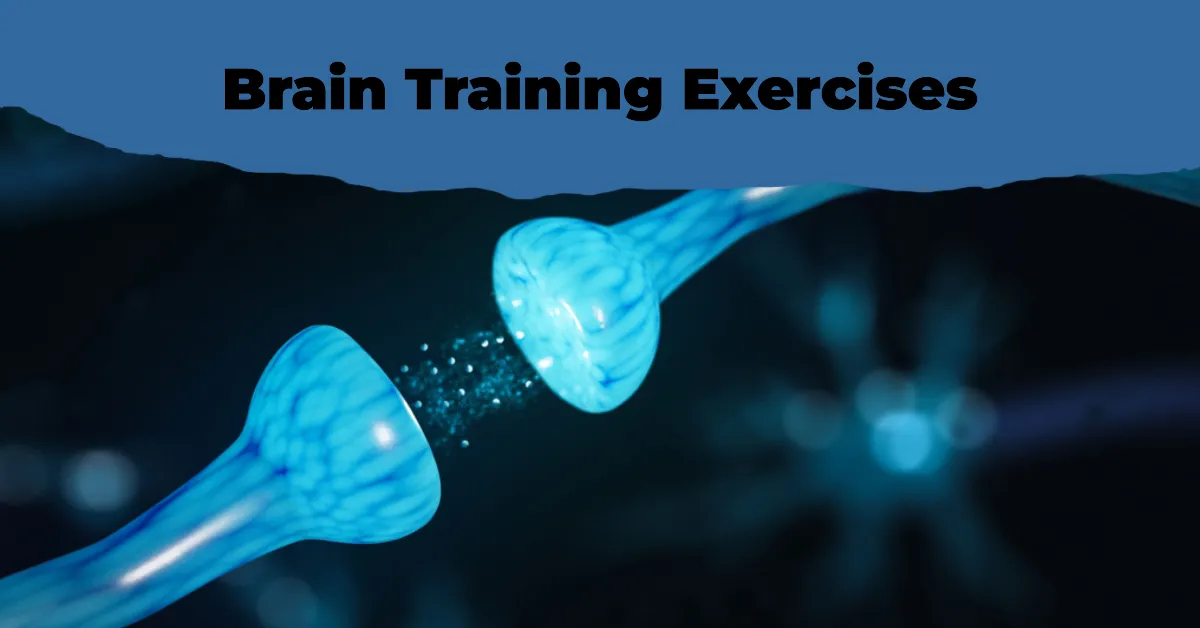
There are several types of cognitive brain training exercises, each designed to target specific cognitive abilities. Some of the most common types of exercises include:
Memory Improvement Exercises
Memory improvement exercises are designed to help improve memory and recall. Some popular memory improvement techniques include:
- Memory palace technique: This involves associating information with specific locations in a familiar place, such as your home or workplace.
- Association technique: This involves creating associations between new information and existing knowledge or memories.
- Visualization technique: This involves creating vivid mental images to help remember information.
- Repetition technique: This involves repeating information multiple times to help commit it to memory.
Attention and Focus Exercises
Attention and focus exercises are designed to help improve concentration and focus. Some popular attention and focus exercises include:
- Mindfulness meditation: This involves focusing on the present moment and being aware of your thoughts and feelings without judgment.
- Brain games and puzzles: These can include crossword puzzles, Sudoku, and other games that require concentration and problem-solving skills.
- Physical exercise: Regular exercise has been shown to improve cognitive function, including attention and focus.
Language and Communication Exercises
Language and communication exercises are designed to help improve language skills, including reading, writing, and speaking. Some popular language and communication exercises include:
- Vocabulary-building exercises: These can include learning new words and using them in context.
- Reading and writing exercises: These can include reading comprehension exercises and writing prompts.
- Conversation practice: This involves practicing speaking and listening skills with others.
Brain Training Exercises for Improved Memory
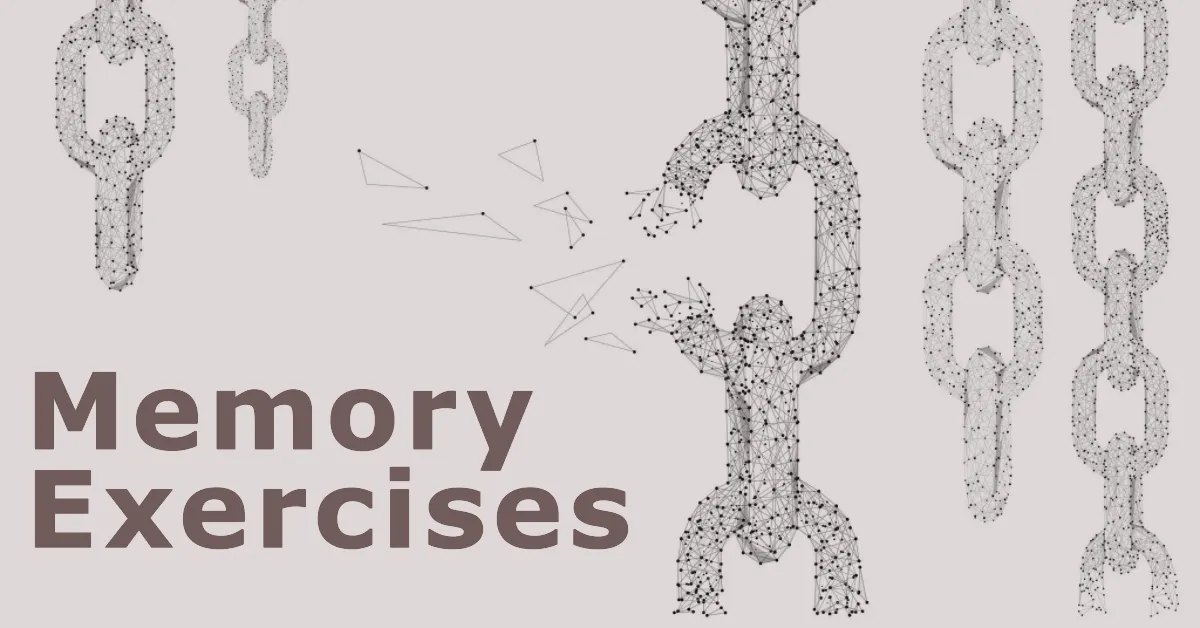
Improving memory is one of the most common goals of cognitive brain training. Here are some brain training exercises that can help improve memory:
Memory Palace Technique
The memory palace technique involves associating information with specific locations in a familiar place. For example, if you want to remember a grocery list, you could associate each item with a different room or item in your house. This is especially effective if you have an established emotional connection with the objects you associate information with.
Association Technique
The association technique involves creating associations between new information and existing knowledge or memories. For example, if you want to remember someone’s name, you could associate it with a visual image or a personal story. It binds the memories together, thus, creating a more complex mental entity which is easier to recall as it has more anchors you can refer to.
Visualization Technique
The visualization technique involves creating vivid mental images to help remember information. For example, if you want to remember a phone number, you could visualize the numbers as objects or images. It helps to imprint the information into your brain as you’re consciously making the effort to commence to a specific mental action when trying to remember the information. It also activated more neural pathways than merely repeating the information in your mind.
Repetition Technique
The repetition technique involves repeating information multiple times to help commit it to memory. For example, if you want to remember a phone number, you could repeat it to yourself several times until the repetition because automatic – this indicates that your subconscious mind has now started to process the information on a deeper level.
Brain Training Exercises for Increased Focus and Cognitive Function
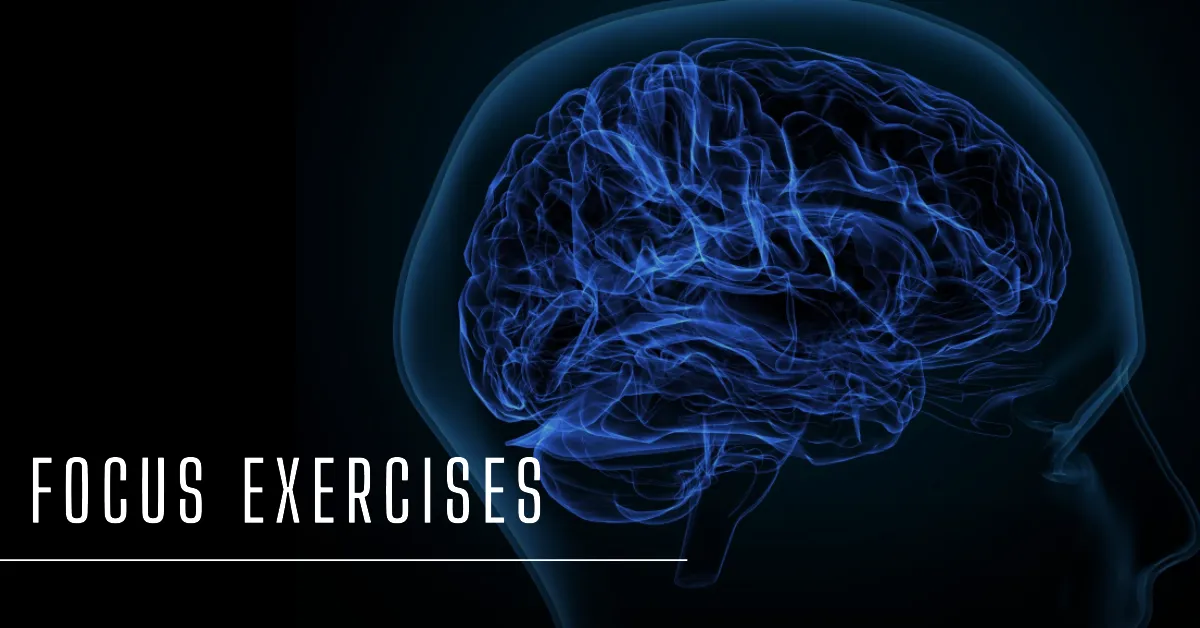
Improving focus and cognitive function is another common goal of cognitive brain training. Here are some brain training exercises that can help improve focus and cognitive function:
Mindfulness Meditation
Mindfulness meditation involves focusing on the present moment and being aware of your thoughts and feelings without judgment. This can help improve focus and reduce stress and anxiety as it forces you to concentrate on the present moment and negate all distractions.
Brain Games and Puzzles
Brain games and puzzles can help improve cognitive function by challenging the brain to think in new and different ways. Some popular brain games and puzzles include crossword puzzles, Sudoku, and memory games. They can help you develop problem-solving and decision-making abilities as well as increase your creativity through thinking of possible outcomes of your actions.
Physical Exercise
Regular physical exercise has been shown to improve cognitive function, including attention and focus. Exercise can also help reduce stress and improve overall brain health. It also releases certain hormones such as BDNF (Brain-Derived Neurotrophic Factor) that actively contribute to the physiological growth of the brain cells.
Sleep and Rest
ALthough not an exercise, getting enough sleep and taking breaks throughout the day can help improve attention and focus. Rest and relaxation can also help reduce stress and improve overall brain health. Also, scientific research suggests that a lack of appropriate rest impairs cognitive function – the same goes for sleep deprivation.
Language and Communication Exercises: Enhancing Your Verbal Proficiency
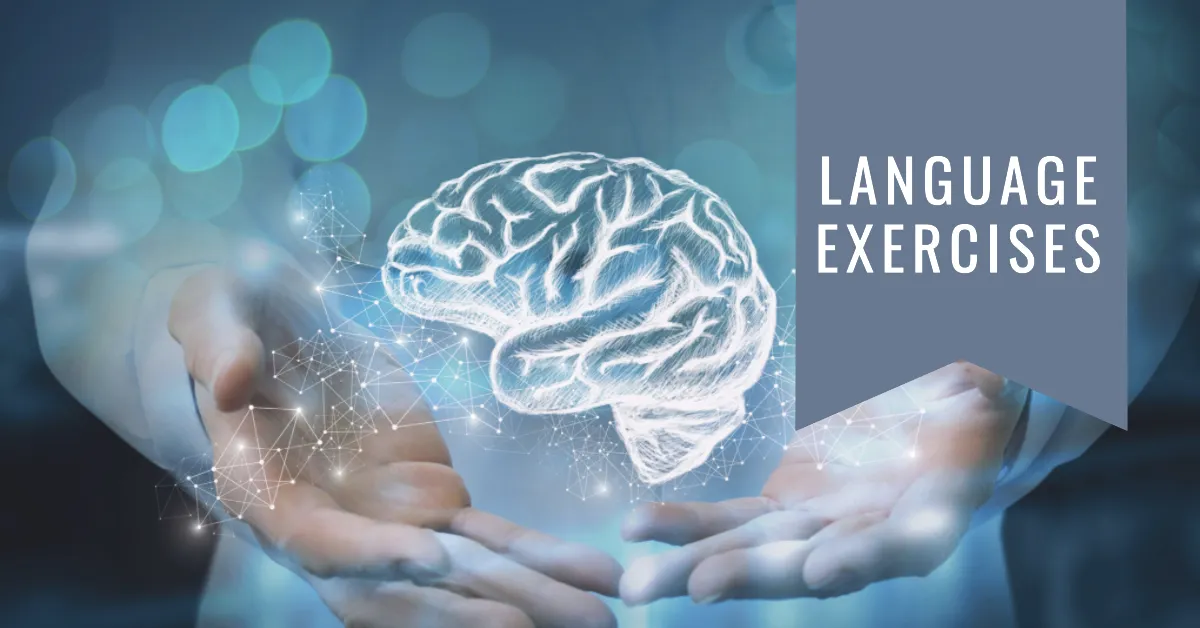
Language and communication exercises play a pivotal role in honing various language skills, contributing to your ability to read, write, and speak with confidence. These exercises are tailored to enhance your linguistic capabilities, ensuring effective interaction and expression. Here are the key domains within language and communication exercises:
Vocabulary Enhancement: Broadening Your Lexicon
Vocabulary-building exercises serve as a cornerstone for effective communication. Engage in activities that introduce new words and phrases, while also mastering their appropriate usage in context. It will help you form new neural pathways, develop creativity, and (as a bonus) be perceived as a more educated person.
Mastering Reading and Writing: A Holistic Approach
Reading and writing exercises foster comprehensive language development. Dive into reading comprehension exercises, where you not only understand the text but also critically analyze it. Additionally, you may explore the world of writing prompts, designed to ignite your creative spark and refine your written expression.
Conversation Fluency: Practicing the Art of Dialogue
Effective communication is a two-way street, involving both speaking and listening skills. Conversation practice allows you to refine your ability to engage in meaningful dialogues. Whether it’s through language exchange with peers or simulated conversations, this section guides you in improving your verbal fluency and active listening abilities.
Incorporating Cognitive Brain Training into Your Daily Routine
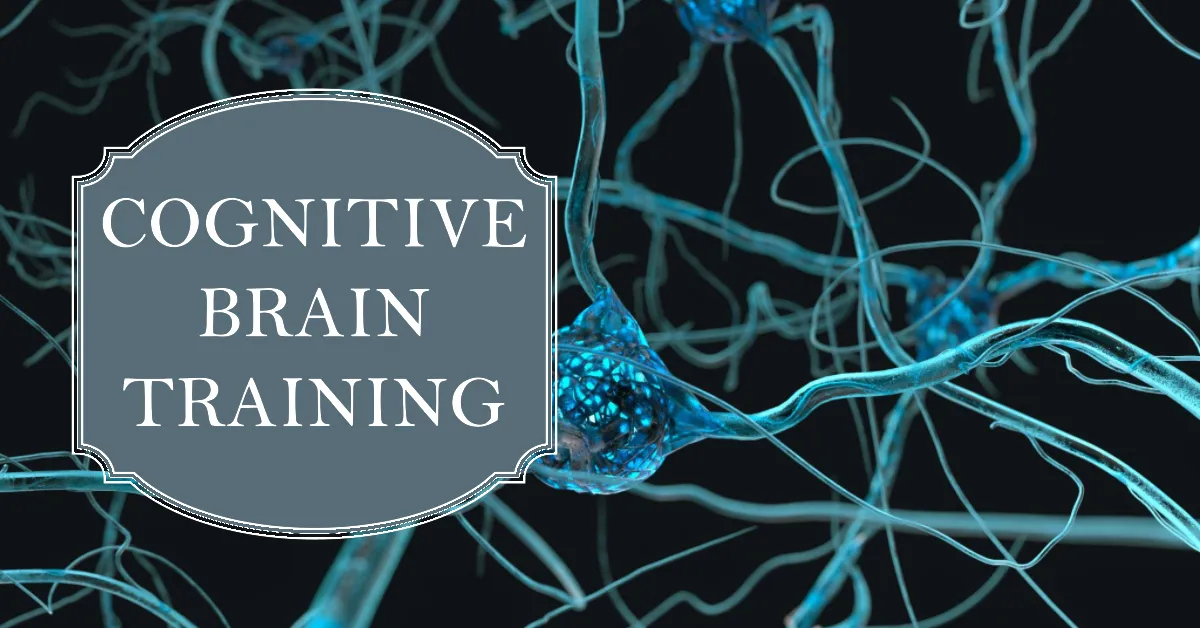
Incorporating cognitive brain training into your daily routine can help you achieve your mental goals. Here are some tips for incorporating brain training into your daily routine:
Setting Goals and Tracking Progress
Setting goals and tracking progress can help you stay motivated and focused on your brain training goals. You can use a journal or an app to track your progress and celebrate your successes. By doing so, you ensure that you can monitor your successes and failures effectively and come up with new solutions to your problems. It also helps you bring attention to specific issues such as lack of disciple, etc. Progress monitoring can be a form of brain training itself.
Finding the Right Exercises for You
Finding the right exercises for you is important for staying motivated and engaged in your brain training. Experiment with different types of exercises to find what works best for you. This is because we’re all unique and might react differently to various forms of exercise, so make sure you stick with the methods that work for you.
Making Time for Brain Training
Making time for brain training is essential for achieving your mental goals. Set aside dedicated time each day or week for brain training exercises and ensure you get enough training each week. Just like any form of training, it’s not to be done randomly, but rather regularly and consistently.
Staying Motivated and Consistent
Staying motivated and consistent is key to achieving your mental goals. Find ways to stay motivated, such as rewarding yourself for progress or finding a workout buddy. This can help you stay on the right track and make sure you are not missing sessions just because you don’t feel like training on specific days.
The Future of Cognitive Brain Training
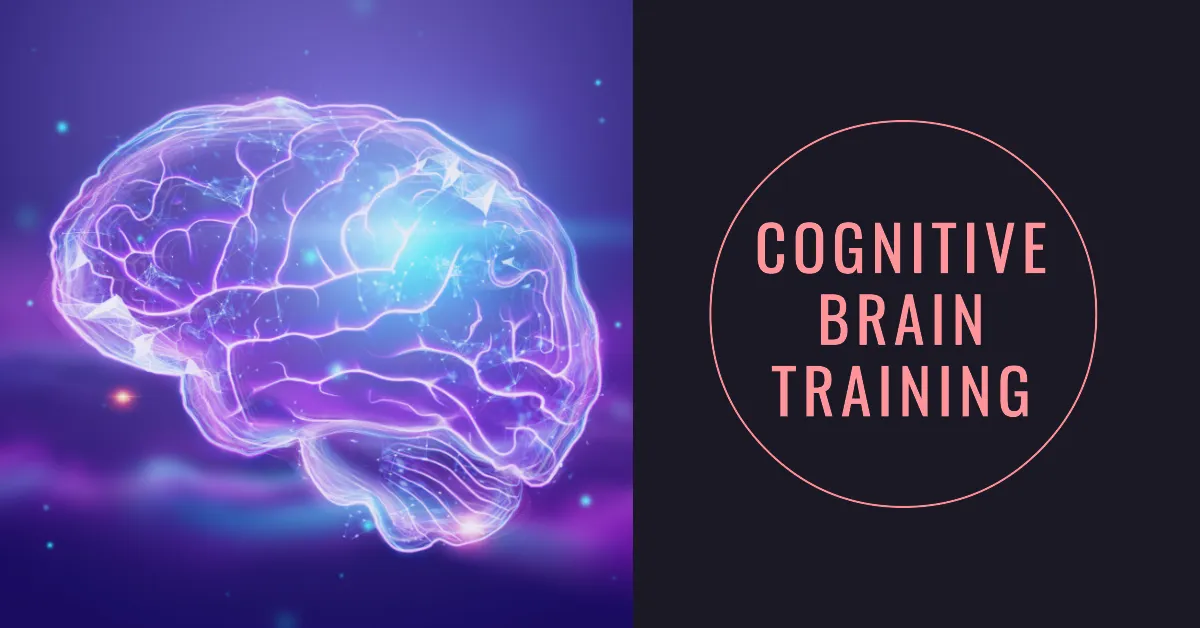
As technology continues to advance, so too does the field of cognitive brain training. Here are some potential future developments in cognitive brain training:
Emerging Technologies and Advancements
Emerging technologies such as virtual reality and brain-computer interfaces could revolutionize the field of cognitive brain training. These technologies could allow for more personalized and targeted brain training exercises without leaving your home. Advanced technology already allows you to monitor your brain activity in real-time although this might be quite expensive.
Potential Benefits and Drawbacks
While cognitive brain training has many potential benefits, there are also potential drawbacks. Some experts have raised concerns about the effectiveness of certain brain training exercises and the potential for overreliance on technology. It would be a wise move to try out a specific exercise for a couple of weeks before fully engaging in lengthy training. This is to ensure that the exercises you chose actually develop your cognitive skills (some might not).
Conclusion
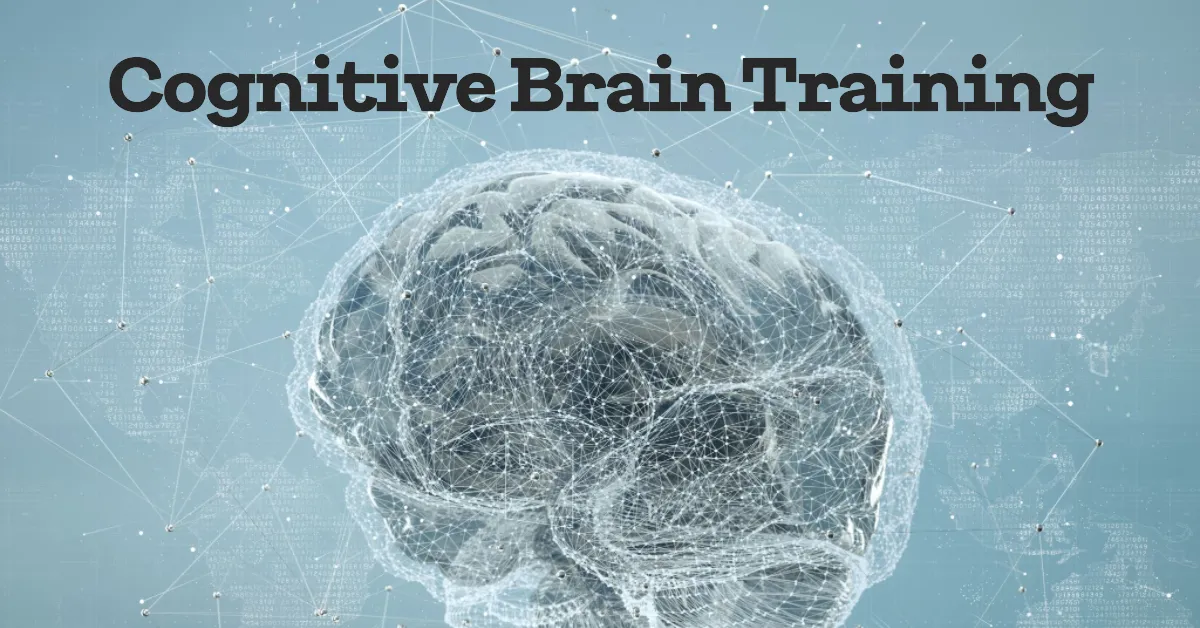
Cognitive brain training exercises can help improve memory, focus, and cognitive function. By incorporating brain training into your daily routine, you can achieve your mental goals and improve your overall brain health. Whether you prefer memory improvement exercises, attention and focus exercises, problem-solving exercises, or language and communication exercises, there are many brain training exercises to choose from.
P.S. If you’re interested in cognitive skills training, consider getting my brain training guide – it explores various approaches to mental training aimed at improving your cognitive skills as well as incorporates physical exercises, nutrition, and cognitive supplementation advice.

